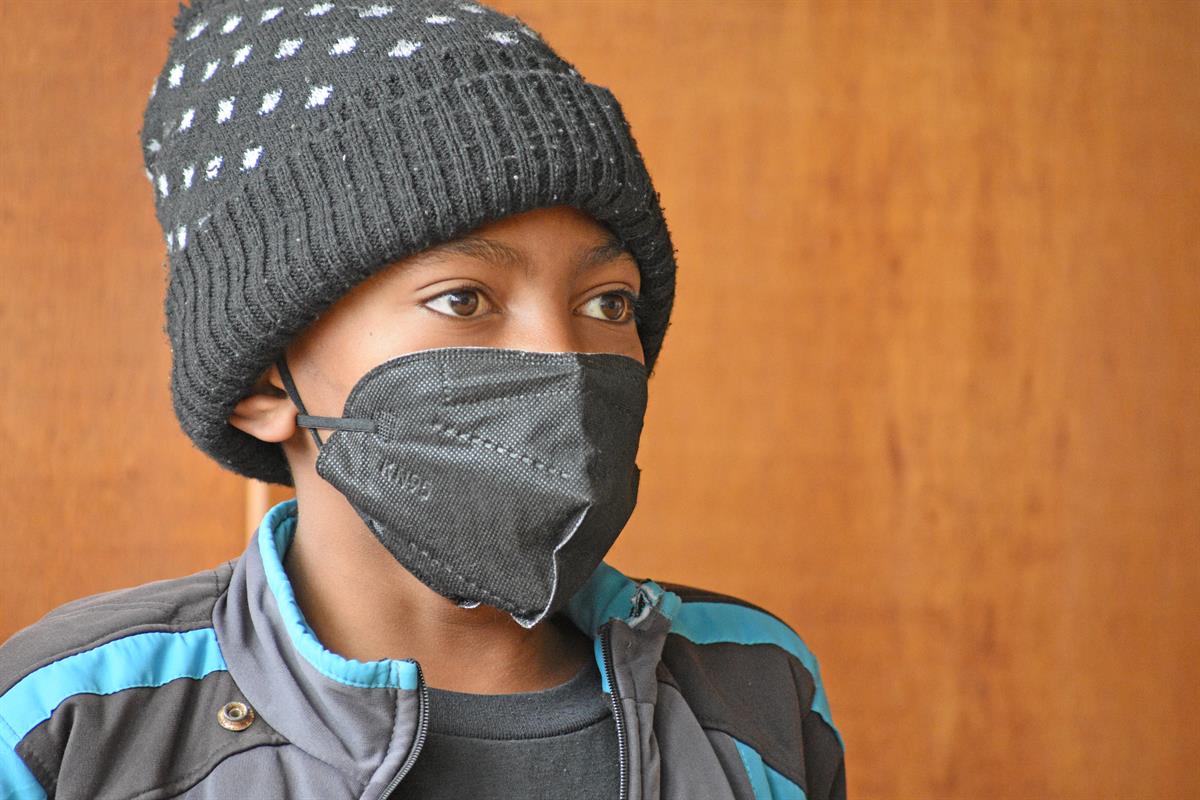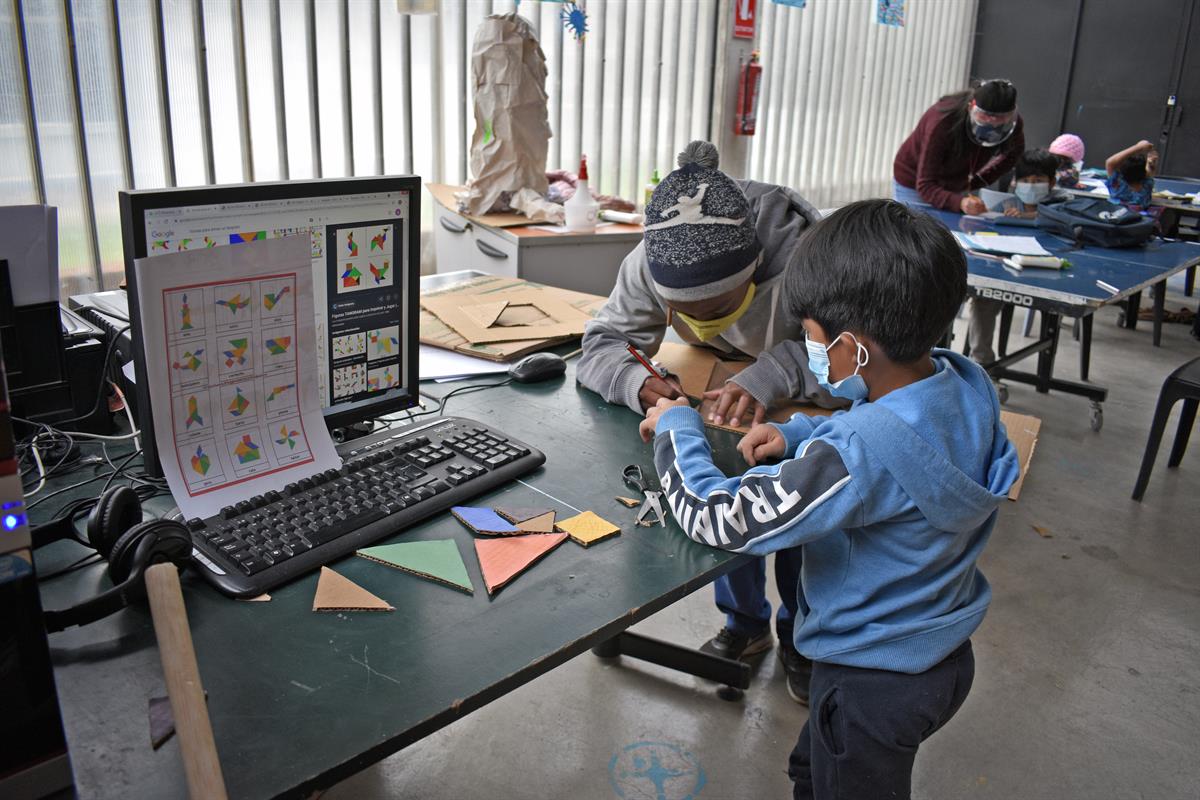Wilson is a 12 year old boy, whom AVSI has been supporting since 2020 through its Distance Support project in Quito, Ecuador.
His family had to face several difficulties during the pandemic, his mother and stepfather stopped receiving a regular salary. To pay the bills, his mom started selling chocolates on the street.
When schools were closed and classes moved online, Wilson and his 5 siblings could no longer attend, as they did not have an Internet connection at home. That's why Wilson started going basically every day to the Luigi Giussani Youth Center, which became almost his second home, in compliance with anti covid rules.
"If I hadn't started coming to the center, I definitely would have stopped going to school because I couldn't take classes" - he says with conviction - "I really like coming here because I learn so much. I can take classes online and do homework, and I also get to build a lot of things in the craft lab."
Even if he had Internet at home, he would still like to continue attending the center: in fact, here he feels less lonely, he made friends with many other kids with whom he can share his experiences.
He is very curious, lively and, when he has a moment of time, he doesn't hesitate to help the younger ones with their homework or even the center's employees with their chores.


The "Luigi Giussani" Youth Center is supported by Fundación Sembrar, which assists AVSI in the management of Distance Support activities in Ecuador.
In order to counter the increasing risk that many children and young people stop studying due to the closure of schools, in 2020 several collaborators of Fundación Sembrar - both individuals and companies - donated computers, tablets and laptops to the Center so that it could adapt its spaces and meet the needs of students by offering them a way to connect to the Internet, attend classes virtually and print the necessary materials, as well as assist them with homework and give them the opportunity to consult a small library.
The center matched their schedules to their class schedules, ensuring that young people had access to education and support for their academic performance at a time when many of them were struggling with lack of resources at home. Three educators have followed more than 100 youth (an average of 40 per month), both in-person and virtually. In the future, when classes will return permanently to face-to-face lessons, the Center will continue to offer homework assistance and guarantee the availability of its staff according to the needs of the young people.
In addition, there was no lack of recreational activities and sports, organized in small groups and in such a way as to follow all the necessary safety measures, so as to give the young people a way to have fun and give voice to their creativity.